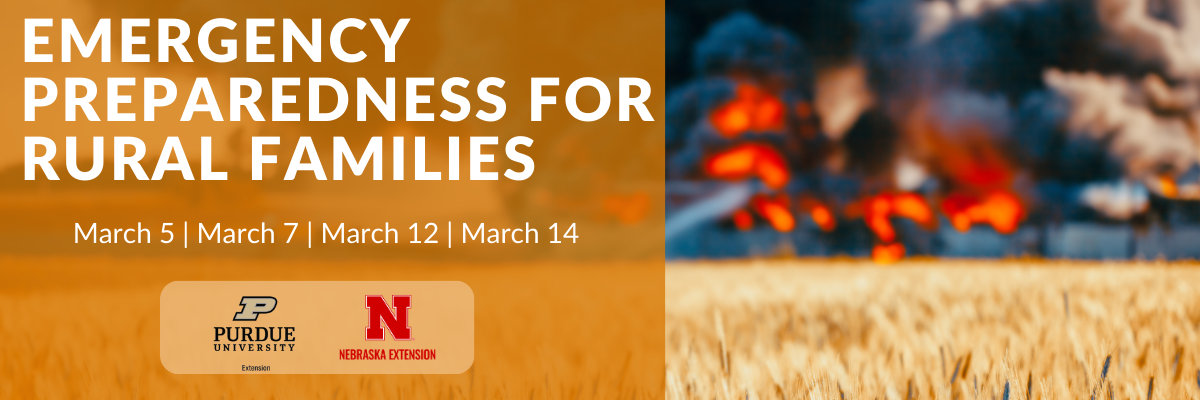Emergency Preparedness for Rural Families
Register Here FOR IN-Person SIte!
In-person Sites Include:
- Winchester - Randolph County Fairgrounds, 1885 S. US HWY 27
The program is a collaboration between extension women in Agriculture programs at Purdue University and the University of Nebraska-Lincoln.
According to the U.S. Bureau of Labor Statistics, agricultural occupations have high rates of work-related injuries and deaths. While not all emergencies result in bodily injury or death, they also may cost rural families in other ways.
“Women play a critical role in ensuring the safety of their homes and rural communities,” said Jessica Groskopf, director of the Nebraska Women in Agriculture program. “In many farm and ranch families, safety is an important topic, but it sometimes gets overlooked because it does not directly impact profitability.”
Each state’s workshop sites will be hosted by local extension personnel. Keynote speakers will be simulcast to each location, and each site will provide additional speakers and hands-on activities. Dinner will be included.
Groskopf said the program’s structure is intended to strengthen networks of women in rural areas, which can provide opportunities for building trust and sharing information. “Connections are so important to rural women,” she said. “We have seen the benefits that come from knowing your peers, having a place to share difficulties, and mitigate the isolation that so many of us in agriculture often feel.”
The workshops seek to help participants initiate preventative practices, set up a plan to deal with emergencies before they occur and be more comfortable reacting to emergency situations.
This project was supported by a grant from NCRCRD through funding from USDA NIFA Award #2022-51150-38141.
